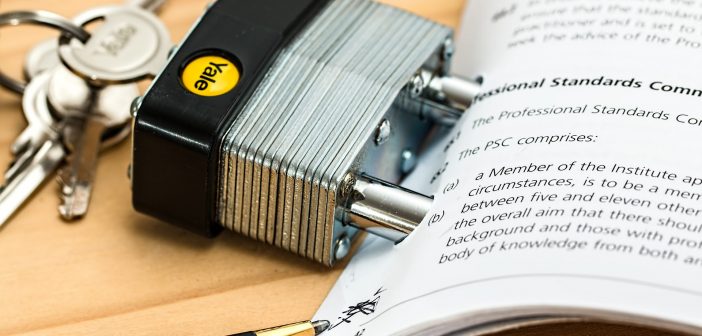Entrepreneurs are by their nature, hopeful and optimistic. The reality is that partners may split and co-founders may get distracted or lose interest. A founder’s agreement is a bit like a pre-nuptial agreement before marriage—not very romantic, but it does protect parties in the event of a dispute down the line. A founder’s agreement offers protection when partner’s decide to split. Whether you are in a partnership, LLC, or have ownership in a corporation, you are going to want to set forth a founder’s agreement.
Before putting pen to paper, you are going to want to make sure that you have chosen the right partners. Are you sure that all of the founders are fully committed—do they have the time, resources, and passion to create a successful partnership? Do you genuinely trust and respect each other? Are your skillsets complimentary?
Once you are sure you have made the right decision about your partners, it’s time to move forward with the founder’s agreement. This step should be taken early on in the business planning phase. In essence, a founder’s agreement is a contract between business partners that sets forth the terms and conditions of ownership as well as other details about the company, including ownership allocations, roles and responsibilities, operating procedures, and legal structure.
Remember that a founder’s agreement is legally binding between founders of a company and does not involve third-parties, including investors. A solid founder’s agreement should include a discussion of all of the following:
Identify members, roles and responsibilities
A founder’s agreement should identify who the founders are, as well as their roles and responsibilities. Disputes can often arise when one or more partner’s feel that someone isn’t pulling their fair share of the weight or failing to meet expectations. A founder’s agreement can help to clarify rules and prevent future disputes. If one partner says, “That wasn’t my job,” you can point to the founder’s agreement to say, “Actually it was.”
Major decisions and voting rules
While you may be on the same page at the outset, business can get messy and life can get complicated. You’ll want to solidify how voting and major decisions will take place, including who decides what, as well as how and when your meetings. These are the details that will help you lay a proper foundation and streamline your everyday operations.
Vesting
First and foremost, a founder’s agreement should state exactly what percentage of the company each individual owns. Furthermore, the agreement should lay out how that ownership vests over time. A vesting schedule determines the ownership each founder has in the company. In many cases, co-founders will not work out and the commitment level of each founder will vary, especially as time goes on. A vesting schedule will determine the amount of stock or ownership each founder has in the company from the outset and down the line.
The idea behind vesting is that founders should earn their share of ownership by contributing their efforts. In general, vesting is for four years, meaning that you have to work an entire year to earn ¼ of your shares in the company. After the second year, the founders share may get vested month by month until the end of the year. In the event that a founder quits before the end of two years, he or she will only have half of their shares and the remainder will be transferred back to the company. The specifics of vesting can be tailored to your business needs or interests, but this is a guideline.
Acquisition
What happens if you get bought out? An acquisition means losing control of the company. Your founder’s agreement may include a “single trigger accelerator clause” that basically means all shares get vested at the time of acquisition and every partner will get 100% of their equity ownership. Even if you do not include the single trigger accelerator clause, your founder’s agreement should include some plan of ownership and share distribution in the event of acquisition.
Salary of partners
Start-ups have to decide early on how the founders will be compensated. Some founders agree that they will not take compensation until there is a profit. Others will agree to compensate each founder at market rates. Of course, every business is unique and compensation will hinge on a number of factors including whether or not you have investors, whether founders have contributed their own cash, and whether it is possible to defer salaries. Your time is valuable and partners should be satisfied with salaries to prevent frustration or hardship down the line.
Incapacitation, death, or opt-out scenarios
What happens if one of your partners gets ill or injured in a car accident and can no longer participate in business operations? It is not enough to simply wait and see what happens. You will want to set forth a plan of action should a partner pass away and provide opt-out scenarios for each partner. It is better to plan ahead for the unexpected than to wait until you are forced to make a decision that could create legal disputes with beneficiaries or creditors.
Intellectual property
One founder may offer the meat of the business with an invention, idea, or other piece of intellectual property. Perhaps more than one partner has a stake in the value of intellectual property. A founder’s agreement can assign the ownership of that intellectual property to one or more founders. Identifying the ownership of the intellectual property can protect the inventor down the line should the company dissolve. You can also protect trade secrets and include non-compete clauses to prevent disputes.
Legal counsel and review
It is wise to have any founder’s agreement drafted and reviewed by an experienced attorney in your area. It can be risky to handle the details on your own or to use an online service. Discrepancies or errors could leave your contract unenforceable and strip you of any protections you were trying to secure.
Time is of the essence
You should create a founder’s agreement before any company is legally incorporated, if possible. Many of the issues discussed will be included in the Articles of Association, but a founder’s agreement can operate independently to protect the founders. Taking the time to sit down with co-founders regarding expectations, relationships, and obligations may force some difficult conversations, but it is well worth it in the long run to have a legally binding agreement that will protect your personal, financial, and professional investments.




